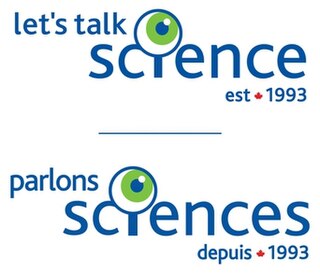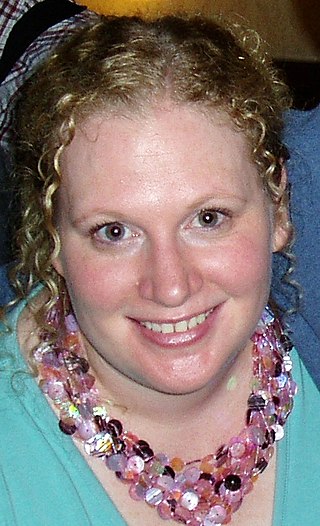
The University of Saskatchewan is a Canadian public research university, founded on March 19, 1907, and located on the east side of the South Saskatchewan River in Saskatoon, Saskatchewan, Canada. An "Act to establish and incorporate a University for the Province of Saskatchewan" was passed by the provincial legislature in 1907. It established the provincial university on March 19, 1907 "for the purpose of providing facilities for higher education in all its branches and enabling all persons without regard to race, creed or religion to take the fullest advantage". The University of Saskatchewan is the largest education institution in the Canadian province of Saskatchewan. The University of Saskatchewan is one of Canada's top research universities and is a member of the U15 Group of Canadian Research Universities.

The Canadian Federation of Engineering Students (CFES) (Fédération canadienne étudiante de génie in French) is the national association of undergraduate engineering student societies in Canada and exists to organize activities, provide services and interact with professional and other bodies at the national and international level for the benefit of Canadian engineering students. The organization is a bilingual non-profit corporation based in Ottawa, Ontario, Canada, managed by a volunteer team of engineering students and recent graduates from across Canada.

The University of Regina is a public university located in Regina, Saskatchewan, Canada. Founded in 1911 as a private denominational high school of the Methodist Church of Canada, it began an association with the University of Saskatchewan as a junior college in 1925, and was disaffiliated by the Church and fully ceded to the university in 1934; in 1961 it attained degree-granting status as the Regina Campus of the University of Saskatchewan. It became an autonomous university in 1974. The University of Regina has an enrolment of over 15,000 full and part-time students. The university's student newspaper, The Carillon, is a member of CUP.

Perimeter Institute for Theoretical Physics is an independent research centre in foundational theoretical physics located in Waterloo, Ontario, Canada. It was founded in 1999. The institute's founding and major benefactor is Canadian entrepreneur and philanthropist Mike Lazaridis.
The Christian Heritage Party is a minor political party in Canada. It fielded forty-five candidates in the 2006 federal election. Information about some of these candidates may be found here. The leader of the party at the time of the election was Ron Gray.
Vera Rose Pezer is a Canadian athlete and administrator. Pezer was the Chancellor of the University of Saskatchewan from 2007 to 2013. A sports enthusiast, Pezer is a Canadian softball champion, golfing contender, and curling champion. She has been inducted into both the Saskatchewan Sports Halls of Fame and the Canadian Curling Hall of Fame. In 2019, Pezer was named the ninth greatest Canadian curler in history in a TSN poll of broadcasters, reporters and top curlers.

Shad Canada is an annual Canadian summer enrichment program for high-achieving high school students in July. The program is open to both Canadian and international students. The program is offered at 21 participating universities across Canada.
The Stem Cell Network (SCN) is a Canadian non-profit that supports stem cell and regenerative medicine research, teaches the next generation of highly qualified personal, and delivers outreach activities across Canada. The Network has been supported by the Government of Canada, since inception in 2001. SCN has catalyzed 25 clinical trials, 21 start-up companies, incubated several international and Canadian research networks and organizations, and established the Till & McCulloch Meetings, Canada's foremost stem cell research event.

Colette Bourgonje (ber-gon-yah) is a Canadian Paralympic cross-country skier and athlete of Métis heritage. She has won four bronze medals in Summer Paralympics and medals in Winter Paralympics for skiing.

The College of Engineering and Physical Sciences (CEPS), is one of seven faculties – referred to as “colleges” – at the University of Guelph in Ontario, Canada. CEPS operates on the University of Guelph main campus, one of four across Ontario, and has one of the largest faculty, staff, and student populations of the seven colleges at U of G.
Actua is a Canadian charitable organization that delivers science, engineering and technology educational programs to young people in Canada.
Marsha Kennedy is a Canadian artist from Regina, Saskatchewan. She is known for her work in painting and drawing. Kennedy grew up in Rouleau, Saskatchewan and attended high school in Regina where she graduated from the Central Collegiate Fine Arts Program. She earned a Bachelor of Fine Arts at the University of Regina in 1977 and completed a Master of Fine Arts at York University in 1981. The themes of "Man vs Nature or Man as a part of nature" make up a reoccurring theme in Kennedy's paintings.

Let’s Talk Science is a registered Canadian charitable organization focused on education and skills development for children and youth in Canada through science, technology, engineering and math (STEM) based programs. Founded in London, Ontario in 1993, the head office remains in London, ON, with a regional office in St. John’s, NL and remote staff across the country. Dr. Bonnie Schmidt is the president and founder of Let's Talk Science.

Rita Orji is a Nigerian-Canadian computer scientist who is a Canada Research Chair in Persuasive Technology, a Professor, and the Director of the Persuasive Computing Lab at Dalhousie University. Her work is in the area of human–computer interaction with a major focus on designing interactive systems to achieve health and well being objectives. She has won over 70 awards and recognitions from both national and international organizations. She has addressed a United Nations panel about the status of women and at the Parliament of Canada.
David Patrick McGrane is a Canadian professor, political scientist and community activist living in Saskatoon, Saskatchewan.
Kari Edith Dunfield is a Canadian microbiologist. She is a Canada Research Chair in Environmental Microbiology of Agro-ecosystems and Professor in Applied Soil Ecology in the School of Environmental Sciences at the University of Guelph. As of 2016, she is the co-editor of the Canadian Journal of Microbiology.

Regan Lee Mandryk is a Professor of Computer Science at the University of Saskatchewan. She specializes in Human-computer interaction.
Mita Dasog is an associate professor at Dalhousie University in Nova Scotia, Canada. She has received the Emerging Professional Award, the Canadian Council of University Chemistry Chairs Doctoral Award, is a “Top 25” Global Young Scientist in Sustainable Research, and is one of the top 150 women in STEM for her outreach efforts with youth and young women.
D. Jade Simon is an American paleontologist, scientific communicator, and disability rights advocate. She is currently a Ph.D. candidate at the University of Toronto, where she studies the paleobiology of oviraptorosaur dinosaurs.

Amira Abdelrasoul is a researcher and associate professor at the Department of Chemical and Biological Engineering at the University of Saskatchewan, where she is the principal investigator of the Hemodialysis Membrane Science and Nanotechnology Research Centre. She is also a membrane technology leader in Canada, and her interdisciplinary research program focuses on solving existing hemodialysis system problems.











